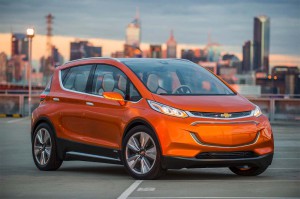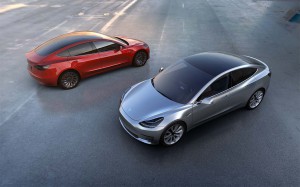After a slow start, U.S. motorists are beginning to turn onto battery-electric vehicles, demand for plug-based models surging by roughly 39% last year, according to industry data.
But, for now, the vast majority of battery-based models have been sold in a handful of mostly coastal states, primarily green-minded California. But a new coalition is hoping to get motorists in the Midwest to plug in as well.
“Electric vehicles are becoming increasingly popular, due to their better batteries, decrease in cost, an increase in choice, and the rollout of charging infrastructure,” said Lew Bartfield, president and CEO of the American Lung Association of the Upper Midwest. But, “The Midwest is often overlooked as a market for electric vehicles.”
(Electrifying design: Click Here to see how battery-cars will undergo a revolution in styling.)
The Lung Association is one of the groups involved in a new coalition, called EVOLVE, created to promote electric vehicles in seven Midwest states: Illinois, Indiana, Michigan, Minnesota, North Dakota, Ohio and Wisconsin.
Working with eight regional Clean Cities coalitions, EVOLVE plans to host more than 200 events across the seven states between now and 2020. These will include 78 ride-and-drive events where potential buyers will get the opportunity to try out some of the latest electrified vehicles, as well as a variety of conferences and other educational events, organizers announced during a news conference at the Chicago Auto Show.
The goal is to “get the word out,” said Bartfield, adding that, “There’s no better way to learn about the performance and environmental advantages of electric vehicles than personal experience.”
The events will also target fleet decision makers, many experts believing that delivery services and other fleets, where daily vehicle usage is clearly defined, could find that electrified vehicles are particularly effective.
Electrified vehicles of all forms, including conventional hybrids, plug-in hybrids and pure battery-electric vehicles, or HEVs, PHEVs and BEVs, have barely dented the American marketplace. Total sales last year accounted for around 3% of all new vehicle sales, but the numbers have been growing as more new models come to market. And some experts believe the technology has hit a critical inflection point with the launch of long-range, more affordable products like the Chevrolet Bolt EV and upcoming Tesla Model 3.
Tesla alone is forecasting it will sell about 500,000 vehicles in 2018 – albeit some of those going for export – a tenfold increase from 2015.
(Tesla orders brief plant shutdown to prep for Model 3 launch. Click Here for the story.)
But demand still is expected to be dominated by California and a handful of other states that have copied its strict emissions mandates.
Part of the challenge is that while batteries are getting more powerful, more compact – and lower in price – they tend to lose efficiency in temperature extremes, especially when facing the sort of winter weather experienced in the regions covered by the EVOLVE.
There could be other challenges facing the coalition, notably questions about the long-term commitment of Washington to help promote and support the nascent electric vehicle market. As a candidate, Donald Trump called the concept of global warming a “hoax,” and his administration is being asked by a number of automakers to reconsider the Corporate Average Fuel Economy mandates passed under the Obama Administration.
There is also some talk about eliminating California’s ability to set emissions standards higher than that for the rest of the country.
“We believe we’re having great success moving (electric vehicle) technology forward,” said Michael Berube, the director of the Office for Vehicle Technologies at the U.S. Department of Energy, during EVOLVE’s Chicago Auto Show news conference.
Berube said it is unclear what direction the Trump Administration will take on clean vehicles, but that his office “will work with the new team (as it) sets the direction.”
(UAW gearing up for a battle as it moves to organize Tesla plant. Click Here for the latest.)


